A masters in behavioral health lets you explore the connections between behavior, culture, and personal health.

Behavioral health is a relatively new discipline, but many accredited schools already offer online graduate programs. As a masters student in behavioral health, you’ll study the science of human behavior, emotion, and psychology.
Editorial Listing ShortCode:
A masters in behavioral health program can help prepare you for a rewarding career in academia, healthcare, research, and other industries. This degree could be a strategic choice if you want to gain a deeper understanding of why humans behave in certain ways under particular conditions.
Online Masters in Behavioral Health Programs

Behavioral health is an interdisciplinary field that blends biology, psychology, and sociology. Experts in this field examine how factors like cultural norms, health literacy, personal experiences, religion, and socioeconomic status shape human behavior. This discipline also investigates how behavior affects mental, physical, and spiritual health.
Many behavioral health specialists use their expertise to advocate for improved public health policies and programming. They can also apply their knowledge by working directly with clients who have behavioral and mental disorders.
Popular areas of study in behavioral health include:
- Behavior disorders
- Community Health
- Family Counseling
- Geriatric behavioral health
- Human communication
- Personality development
- The relationship between behavior and health disorders
- Risk and resilience
- Substance abuse disorders
- Youth behavioral health
Much like on-campus or online masters degrees in counseling, a master program in behavioral health enables you to learn about these topics through coursework, research projects, internships, and other opportunities. You may also pursue a concentration in areas like applied research, clinical assessment, and youth behavioral health. These learning experiences allow you to develop expertise in your areas of interest.
Editorial Listing ShortCode:
You could develop valuable research skills as you complete your online masters degree. Many behavioral health degree online programs require you to conduct hands-on research and produce an original thesis. These opportunities could prepare you for a doctoral program in behavioral health.
A masters in behavioral health may also help you qualify for a number of career paths. Here are some positions that behavioral health professionals pursue:
- Behavioral analyst
- Behavioral scientist
- Behavioral therapist
- Crisis intervention specialist
- Public health specialist
- Rehabilitation Specialist
- School psychologist
- Social worker
- Substance abuse counselor
This versatile degree could be a strategic choice if you want to help people better understand and improve their behavioral health. This discipline can also be beneficial if you want to promote social justice. You might choose to focus on treating vulnerable communities and researching issues that affect their behavioral health, like racial and social class inequalities.
Behavioral Health Careers & Salaries
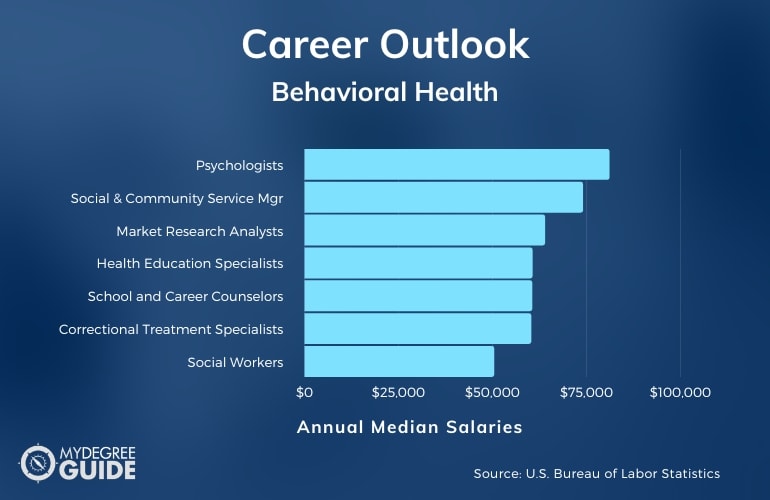
Graduates of master’s programs in behavioral health may find career opportunities in a wide variety of healthcare settings and other industries.
In addition to healthcare facilities, potential employers for behavioral health professionals include community health centers, consulting firms, correctional facilities, and social agencies. Professionals with a background in behavioral health can also work in marketing companies and marriage and family counseling clinics.
Based on data from the Bureau of Labor Statistics, here are potential positions related to behavioral health, along with their median salaries.
| Careers | Annual Median Salaries |
| Psychologists | $81,040 |
| Social and Community Service Managers | $74,000 |
| Market Research Analysts | $63,920 |
| Health Education Specialists | $60,600 |
| School and Career Counselors and Advisors | $60,510 |
| Probation Officers and Correctional Treatment Specialists | $60,250 |
| Social Workers | $50,390 |
| Marriage and Family Therapists | $49,880 |
| Social Science Research Assistants | $49,720 |
| Substance Abuse, Behavioral Disorder, and Mental Health Counselors | $48,520 |
These opportunities typically involve working directly with clients. But you may also find research-focused behavioral health jobs with government agencies, scientific research and development organizations, and other employers.
Editorial Listing ShortCode:
Some professionals even start their own behavioral health clinics or consulting companies. Those who want to become clinical psychologists go on to pursue a doctorate in the field.
Behavioral Health Master’s Curriculum & Courses

All masters programs in behavioral health have unique degree requirements, but here are some typical courses you may take:
- Advanced Biopsychology: This class analyzes how biological and neurological functions intersect with environmental factors to shape human behavior.
- Adulthood and Death: You’ll analyze aging, grief, changes in human behavior in adulthood, and the dying process.
- Behavioral Research Methods: You’ll learn techniques that you can use to study individual clients’ behavior, including behavior recording techniques and experimental approaches.
- Health Behavior Theory and Communication: You’ll learn how to use behavior theories and communication methods to promote healthy actions and choices in individuals, communities, and populations.
- Health Policy and Ethics: You’ll explore historical and present-day ethical dilemmas in behavioral and public health.
- Integrated Behavioral Health Practice in Primary Care Settings: This course covers strategies for incorporating behavioral health practices in primary care facilities.
- Lifespan Psychology: You’ll analyze theories of human development from prenatal stages to death, focusing on normal and abnormal development.
- Psychopathology and Diagnosis: This class covers the history of major mental health disorders, criticisms of the DSM-V, diagnostic methods, and treatment options.
- Substance Abuse Diagnosis and Treatment: You’ll learn how to identify, diagnose, and develop treatment plans for patients with substance abuse disorders.
- Theories of Behavior and Change: You’ll study theories of behavior change and treatment methods from historical, scientific, and socio-cultural perspectives.
Additionally, many behavioral health graduate programs require you to complete courses in relevant areas like biology, quantitative research methods, and statistics.
Admissions Requirements

All colleges have unique admissions criteria, so it’s beneficial to research the requirements of prospective programs before applying.
Here are a few typical admissions requirements for masters in behavioral health programs:
- Bachelor’s degree in a relevant field
- Minimum GPA of 3.0, on average
- Official transcripts from your high school and undergraduate studies
- GRE or GMAT scores (not all schools require them)
Some programs require applicants to have several years of work experience in a health-related position before enrolling.
Accreditation
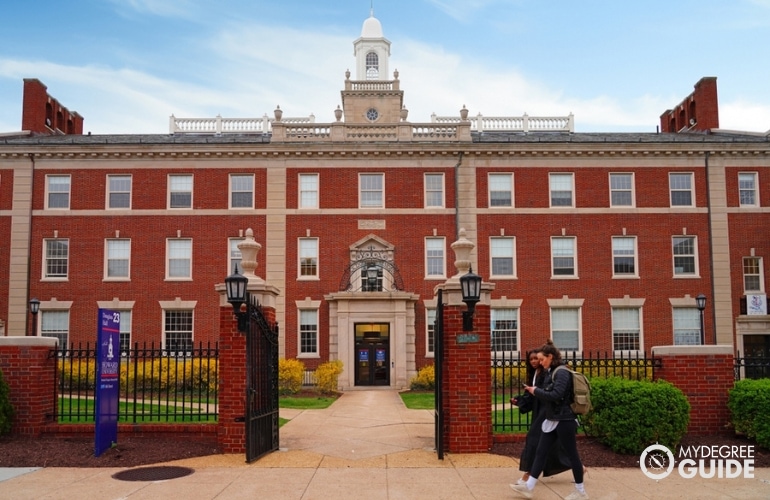
Enrolling in a regionally accredited school offers several benefits. Regionally accredited programs have met rigorous educational standards and passed a review by a regional accrediting organization.
If you choose an accredited online program, you can feel confident you’ll receive a quality education. Many employers prefer to hire graduates from accredited programs. You may also have more financial aid opportunities if you enroll at an accredited university. An accredited degree may also be required for licensure or certification.
Editorial Listing ShortCode:
You can learn more about regional accreditation and check the status of prospective schools by visiting the Council for Higher Education Accreditation (CHEA).
Behavioral Health Licensure and Certifications

If you want to work directly with patients, you’ll be required to obtain a behavioral health license. Here are two popular certifications:
- Board Certified Behavior Analyst (BCBA): This certificate qualifies you to work as an independent behavioral analyst. It’s necessary to meet educational and fieldwork requirements and pass the BCBA exam to earn this certification.
- National Counselor Examination (NCE): This 200-question exam tests your knowledge of counseling methods and services. Some states require you to pass this exam to get licensed as a counselor.
Each state has unique licensing requirements, so it’s strategic to research the specific rules for your area.
Financial Aid and Scholarships

As you research master’s programs in behavioral health, you may also consider investigating financial aid opportunities. You might be eligible for programs that could decrease the upfront costs of your degree.
The federal and state governments offer a number of financial aid options, such as student loans and work-study programs. Submitting the Free Application for Federal Student Aid (FAFSA) can help you find out if you’re eligible for these initiatives. Many colleges and universities provide financial aid for qualifying students. You might have the chance to receive merit- or need-based grants and scholarships from your school.
Some masters programs also offer research or teaching assistantships. These opportunities allow you to earn a stipend while gaining valuable skills and work experience. If you’re currently working, you can see if your employer offers tuition assistance or reimbursement programs.
What Is a Behavioral Health Masters Degree?

A behavioral health masters degree is an interdisciplinary graduate program that prepares students to research, diagnose, and treat behavioral health issues.
You can gain advanced knowledge of the ways that biological, cultural, and social factors affect human behavior. You can expect to take classes on an assortment of topics, such as ethics, neuroanatomy, and substance abuse disorders.
A masters in behavioral health program also enables you to develop expertise in behavioral health research. You’ll study numerous research methods and theories. Additionally, you may have the opportunity to apply your knowledge by taking research practicums and writing a thesis.
What Can You Do with a Master’s Degree in Behavioral Health?

A masters degree in behavioral health can help you launch or advance a career in healthcare. Behavioral health professionals find employment in many settings, including correctional facilities, hospitals, and rehabilitation facilities. You could also seek positions outside of healthcare with corporations, marketing firms, and biotechnology companies.
The Bureau of Labor Statistics forecasts positive job growth for many careers related to behavioral health. For example, employment for substance abuse, behavioral disorder, and mental health counselors is expected to increase by 22% over the next ten years. This growth rate is much faster than average, highlighting the growing need for behavioral health professionals.
How Long Does It Take to Get a Masters in Behavioral Health Online?

The time it takes to earn an online masters in behavioral health depends on several factors. The required number of credit hours can vary from around 30 to over 60, and some programs require you to complete a masters thesis.
If you enroll full-time in a 36-credit-hour program with no thesis requirement, you may be able to complete your degree in 1 year if you study full-time and year-round, including during the summer. A 60-credit hour program will often require at least 2 years of full-time study.
Editorial Listing ShortCode:
Completing a masters thesis, enrolling part-time, and repeating classes are factors that could increase the time it takes you to graduate.
What’s the Difference Between a Behavioral Health vs. Mental Health Masters Degree?
Behavioral health and mental health may sound similar, but they’re separate disciplines. Here are a few differences between masters degrees in each of these fields.
| Masters in Behavioral Health | Masters in Mental Health |
|
|
If you’re primarily interested in studying behavior, a masters in behavioral health could be a suitable choice.
Is a Masters in Behavioral Health Degree Worth It?

Yes, a masters in behavioral health degree is worth it for many students. You’ll have the opportunity to study numerous fascinating topics, such as behavioral theories, biopsychology, and death and dying. If you’re passionate about unlocking the mysteries of the human brain, you’ll likely be interested in the work of a behavioral health specialist.
Editorial Listing ShortCode:
According to the Bureau of Labor Statistics, substance abuse, behavioral disorder, and mental health counselors are expected to see 22% job growth over the next ten years, which is much faster than average. Some graduates also use their expertise to advocate for vulnerable groups or participate in cutting-edge research to benefit groups they feel passionate about helping.
Universities Offering Online Masters in Behavioral Health Degree Programs
Methodology: The following school list is in alphabetical order. To be included, a college or university must be regionally accredited and offer degree programs online or in a hybrid format.

The MS in Behavioral Health Psychology program at Carroll University aims to prepare students for careers as Licensed Professional Counselors in the state of Wisconsin. The program offers concentrations in Applied Research, Youth Behavioral Health, Adult and Geriatric Behavioral Health, and Clinical Assessment.
Carroll University is accredited by the Higher Learning Commission.

Concordia University—St. Paul offers an MA in Human Services—Forensic Behavioral Health. The program requires the completion of 36 credit hours and can typically be finished in 2 years. Coursework is available online to help students balance work and school. Students move through the program with a cohort.
Concordia University – St. Paul is accredited by the Higher Learning Commission.
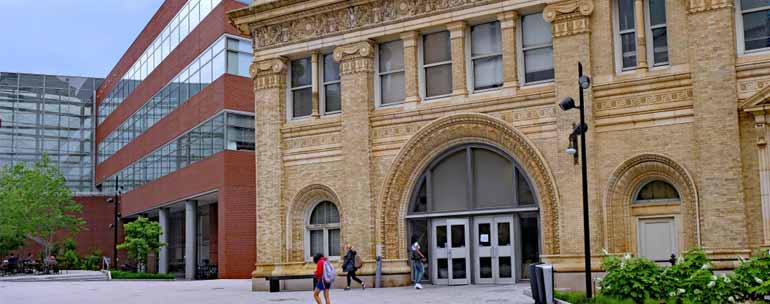
Drexel University offers a Master of Science in Applied Behavior Analysis that can be earned online. The program is designed to provide a high level of flexibility while preparing students for the Behavior Analyst Certification Board exam. The program features two concentration options: Social, Emotional, and Behavioral Wellness and Autism Spectrum Disorders.
Drexel University is accredited by the Middle States Commission on Higher Education.
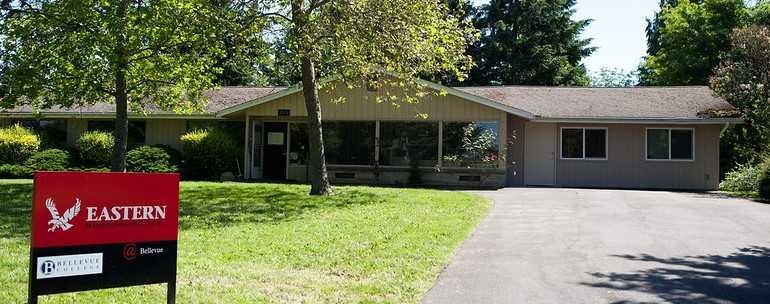
Eastern Washington University’s Master of Arts in Behavioral Health is available completely online. The program offers the opportunity to participate in a practicum. Potential courses include Counseling Theories for Addiction Professionals, Screening and Assessment of Co-Occurring Disorders, and Research for Evidence Based Practice.
Eastern Washington University is accredited by the Northwest Commission on Colleges and Universities.

Marquette University’s Master of Science in Clinical Mental Health Counseling program can typically be completed in 3 years. It offers a general track and a specialization in Child and Adolescent Counseling. The program is available in a flexible and convenient online format, including both synchronous and asynchronous components.
Marquette University is accredited by the Higher Learning Commission.

The Metropolitan State University of Denver offers an MS in Clinical Behavioral Health with an emphasis in Addictions Counseling. The program requires participation in a practicum and internship. Potential courses include Advanced Ethical Practice, Social and Cultural Foundations (Multicultural Counseling), and Development Across the Lifespan.
MSU Denver is accredited by the Higher Learning Commission.
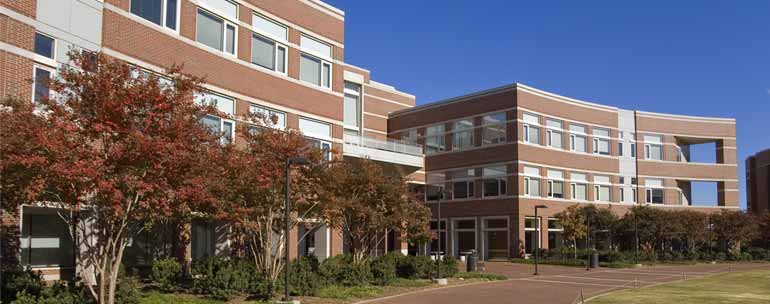
North Carolina State University offers an online program for a Master of Education in Clinical Mental Health Counseling. The program uses a part-time cohort model and usually takes 3 years to complete. A few weekend visits to campus are required during the final year. The curriculum is designed to prepare students for licensure in the state of North Carolina.
North Carolina State University is accredited by the Southern Association of Colleges and Schools Commission on Colleges.

Pepperdine University offers a Master of Science in Applied Behavior Analysis. The degree can be mostly earned online, but the program does require 6 units of supervised field placement. The curriculum is designed to prepare students for the BCBA exam. New cohorts start four times a year. The program can typically be finished in 18 to 21 months.
Pepperdine University is accredited by the Accrediting Commission for Senior Colleges and Universities of the Western Association of Schools and Colleges.
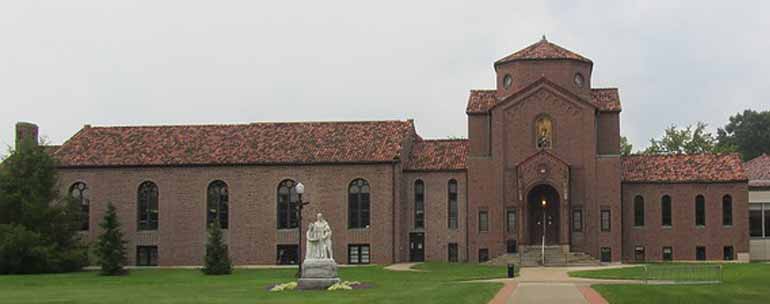
St. Bonaventure University offers an online program for an MSEd in Clinical Mental Health Counseling. The program offers opportunities to apply what is learned in the participation of a practicum and two internships. It provides assistance in finding local placement sites. The program’s graduates have a 100% pass rate on licensure exams.
St. Bonaventure University is accredited by the Middle States Commission on Higher Education.

The University of Central Missouri offers an MS in Behavior Analysis with a Behavior Analysis Therapy option. This fully online program usually takes 2 years to complete and aims to prepare students for the BCBA exam. The program’s graduates have a 100% job placement rate. Potential courses include Research Methods in Applied Settings, Behavioral Assessment, and Ethics and Behavioral Healthcare.
The University of Central Missouri is accredited by the Higher Learning Commission.
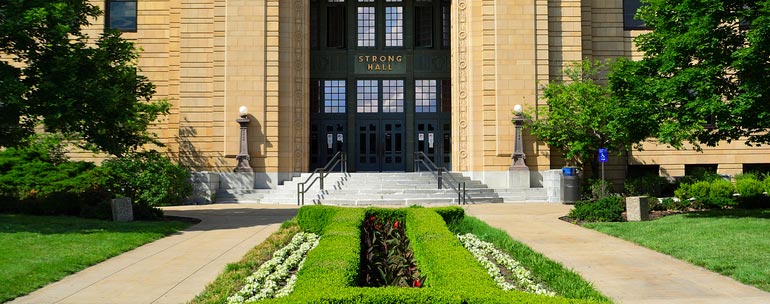
The University of Kansas offers a Master of Arts in Applied Behavior Science. The program is mostly online, but students are required to come to campus to defend a thesis. Courses use both synchronous and asynchronous elements. The curriculum is designed to prepare students for BCBA certification.
The University of Kansas is accredited by the Higher Learning Commission.

The University of San Francisco offers a Master of Public Health with a concentration in Behavioral Health. The curriculum is designed to help students become Certified Health Education Specialists. The degree can typically be earned in 2 years on campus. Classes only meet one evening per week, making it easier to fit into busy schedules.
The University of San Francisco is accredited by the Western Association of Schools and Colleges Senior College and University Commission.

The University of South Florida offers an MS in Child and Adolescent Behavioral Health. All courses are available online, and students can choose to complete a thesis or fieldwork experience. There are four focus areas offered: Developmental Disabilities, Research and Evaluation, Leadership in Child and Adolescent Behavioral Health, and Youth and Behavioral Health.
The University of South Florida is accredited by the Southern Association of Colleges and Schools Commission on Colleges.

The University of West Alabama’s MS in Clinical Mental Health Counseling program is available online. It requires the completion of 60 credit hours of 8 week courses, a practicum, and an internship. The degree requirements can typically be finished in 2 to 3 years. Potential courses include Lifespan Development and Learning, Psychopathology, and Techniques of Counseling.
The University of West Alabama is accredited by the Southern Association of Colleges and Schools Commission on Colleges.

William James College offers an online program for an MA in Clinical Mental Health Counseling. It offers a student-centered learning environment and numerous field experiences to provide opportunities to practice applying the things learned in the real world. The curriculum is designed to prepare students for LMHC licensure in the state of Massachusetts.
William James College is accredited by the New England Commission of Higher Education.
Getting Your Masters Degree in Behavioral Health Online

Enrolling in an online masters degree in behavioral health will allow you to deepen your understanding of human actions, choices, and disorders. This new field is still developing, so you could be at the forefront of exciting advances in psychology.
This degree can help prepare you for a range of career paths. You might find employment opportunities in correctional facilities, psychology clinics, research laboratories, and other settings. Some graduates pursue a doctorate after earning a masters in behavioral health, such as an on-campus or online PhD in Marriage and Family Therapy.
Are you ready to start your behavioral health journey? You can begin today by researching accredited schools that offer online masters programs in behavioral health.

